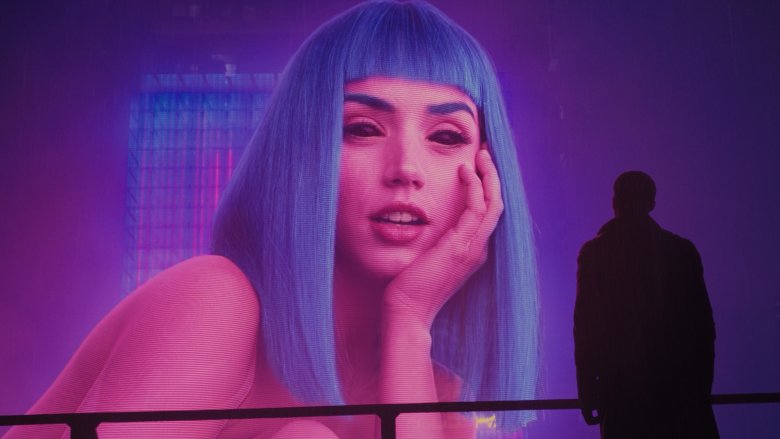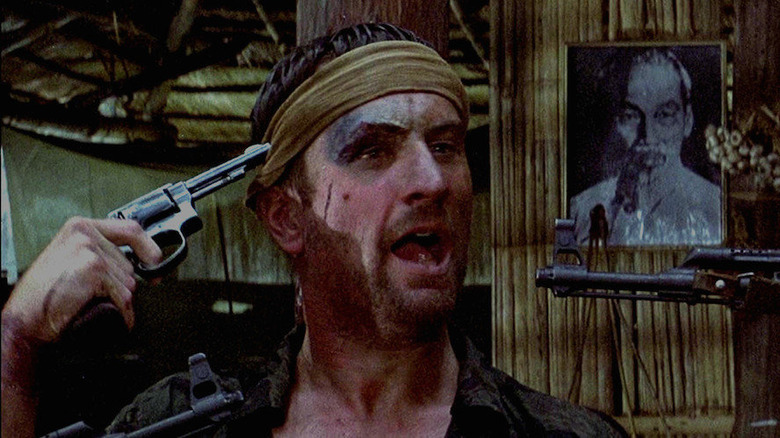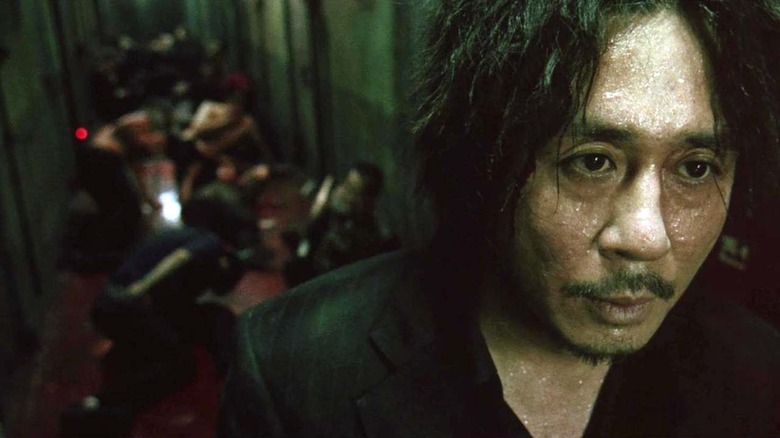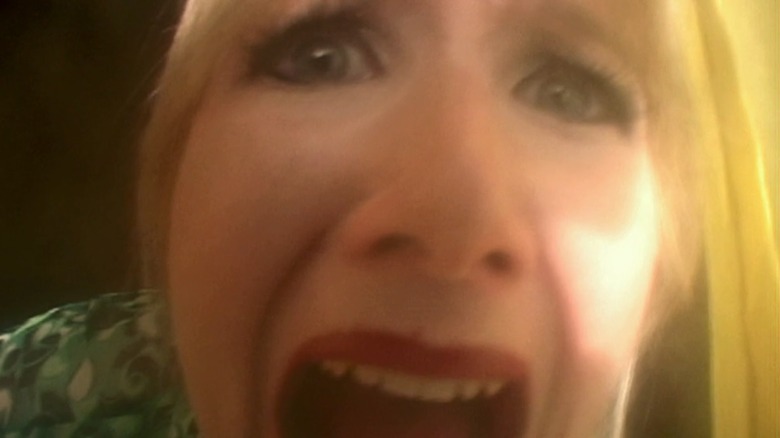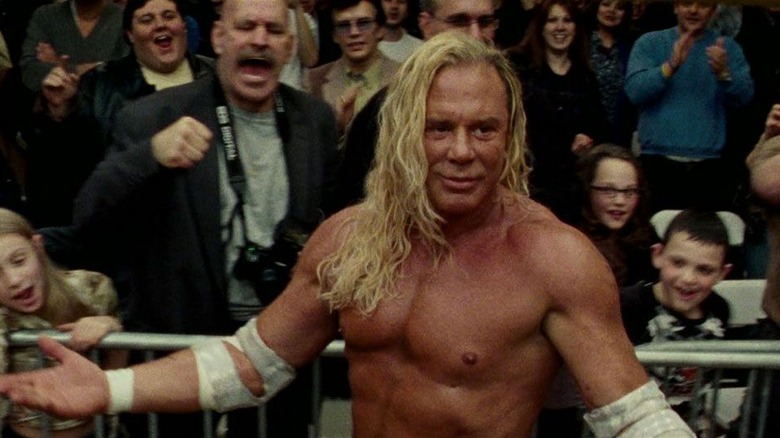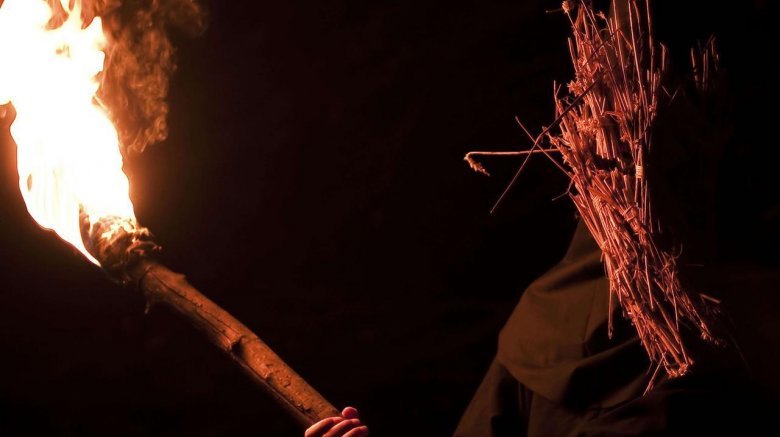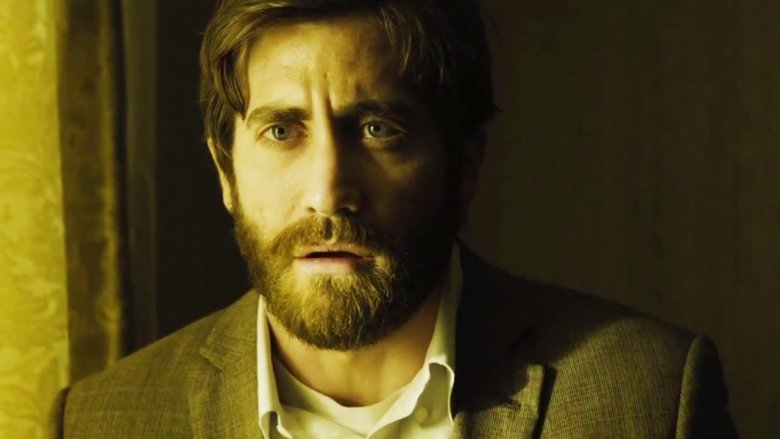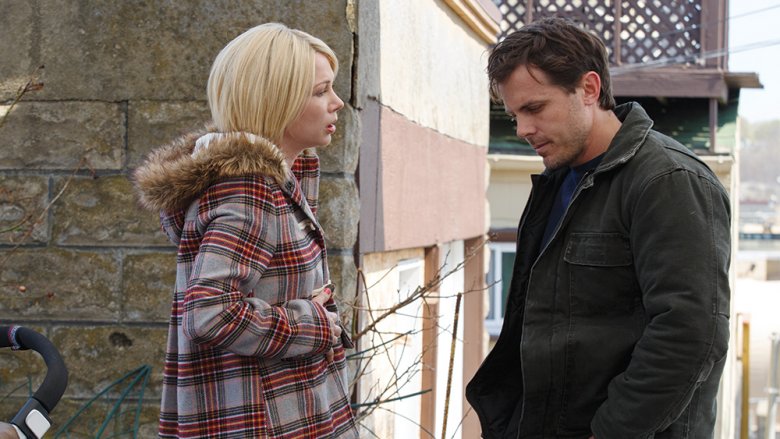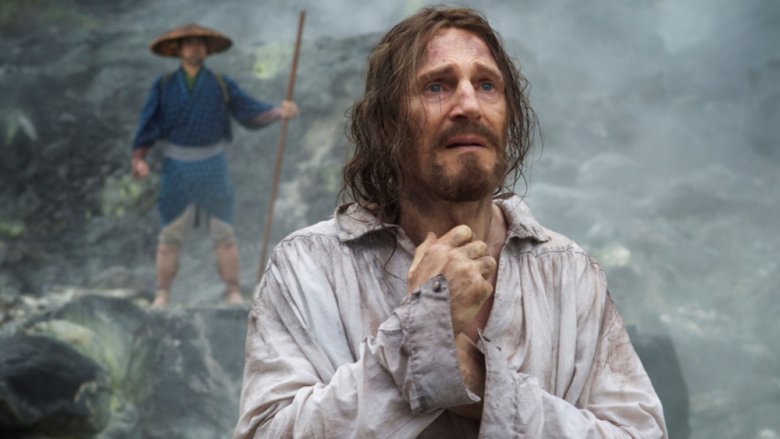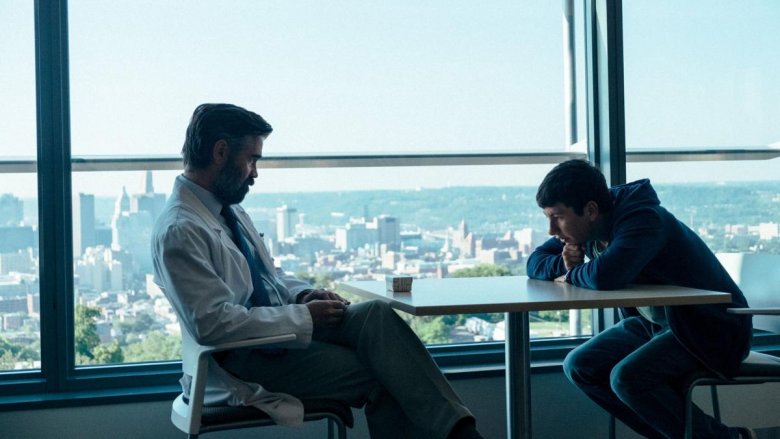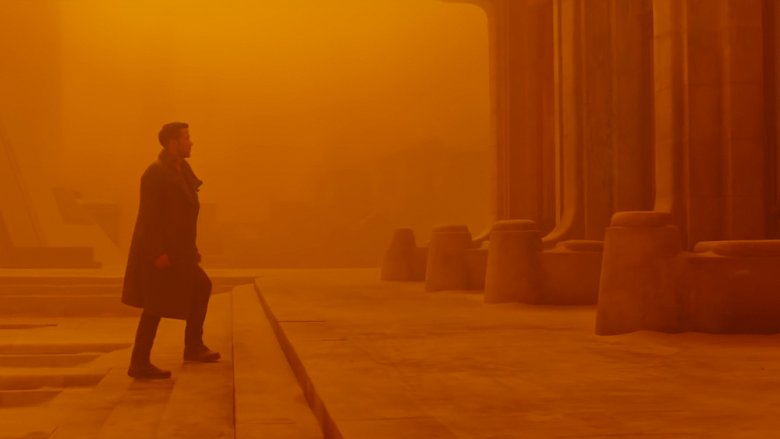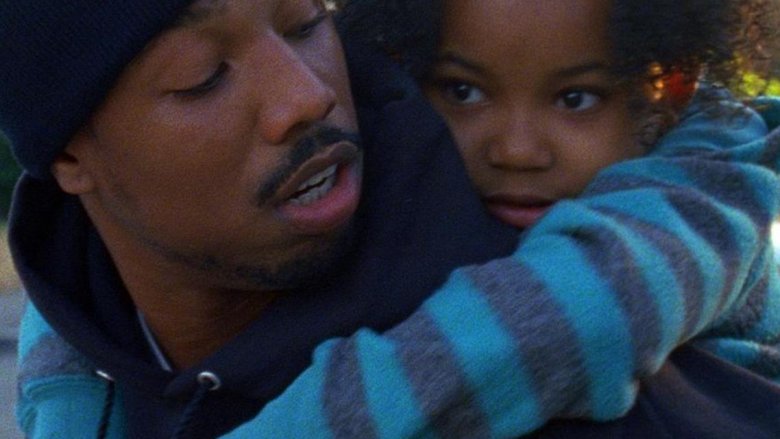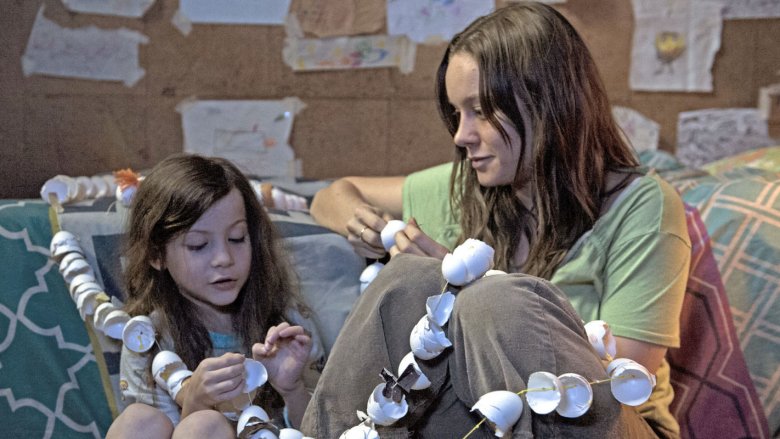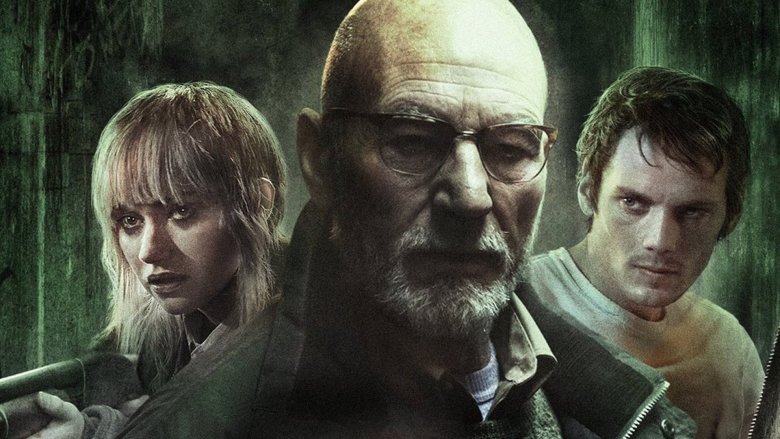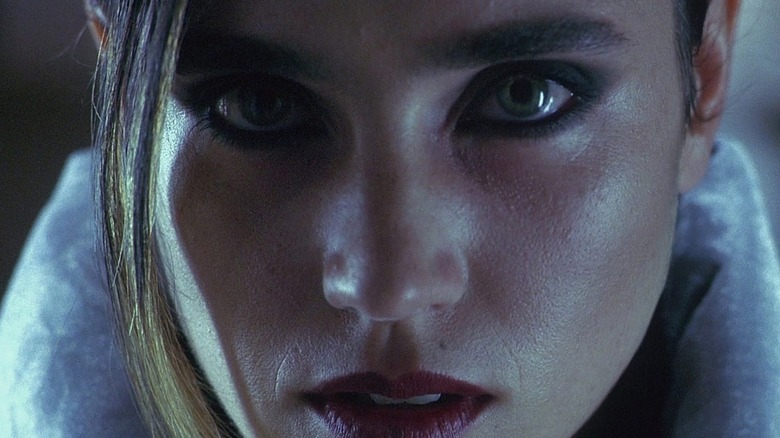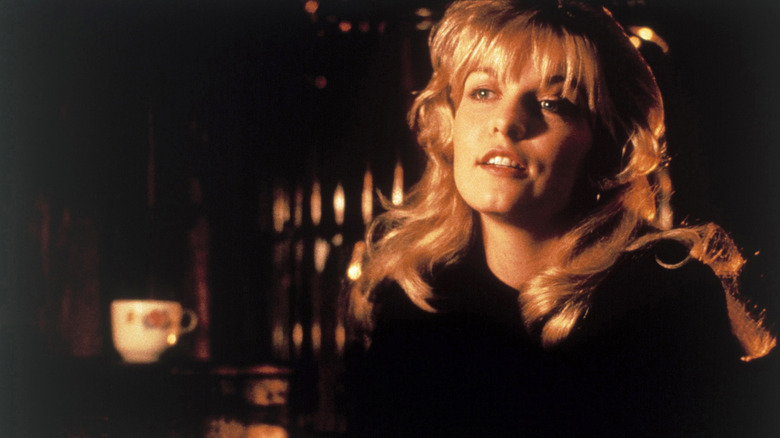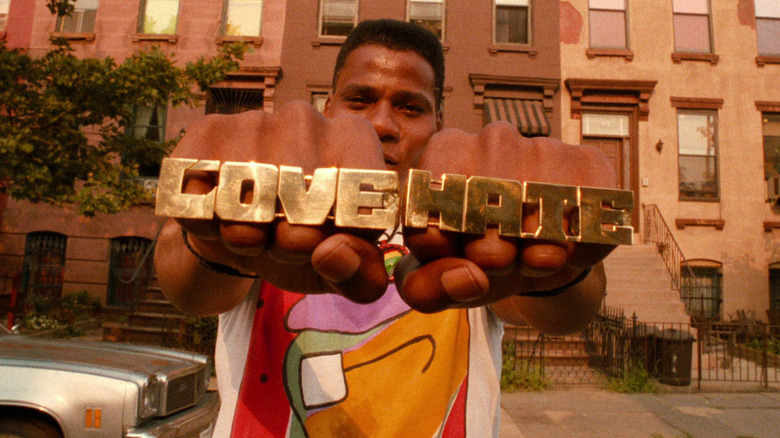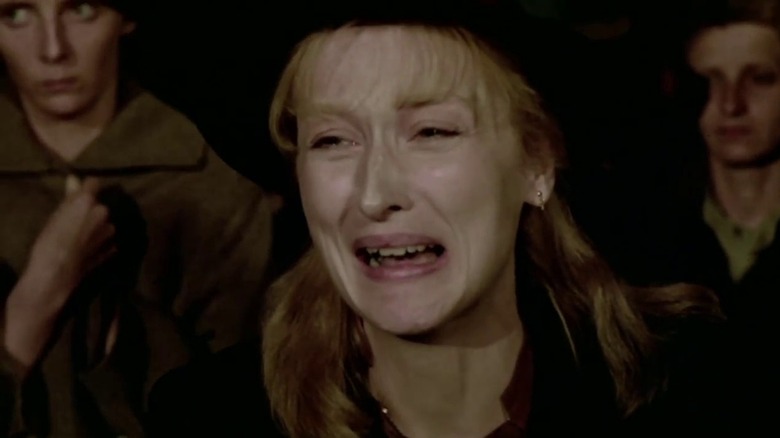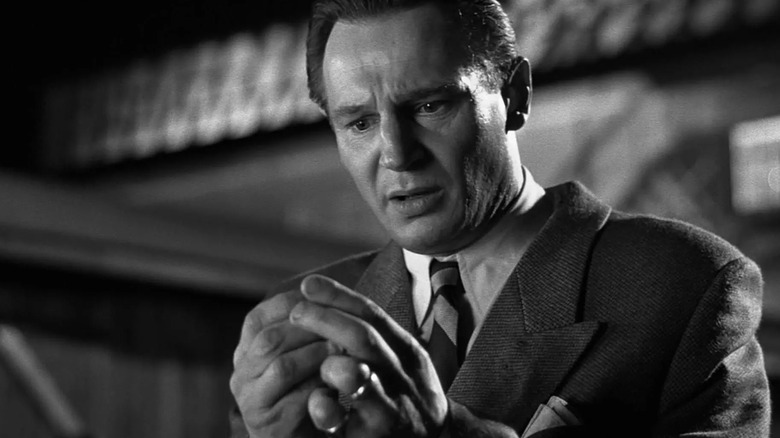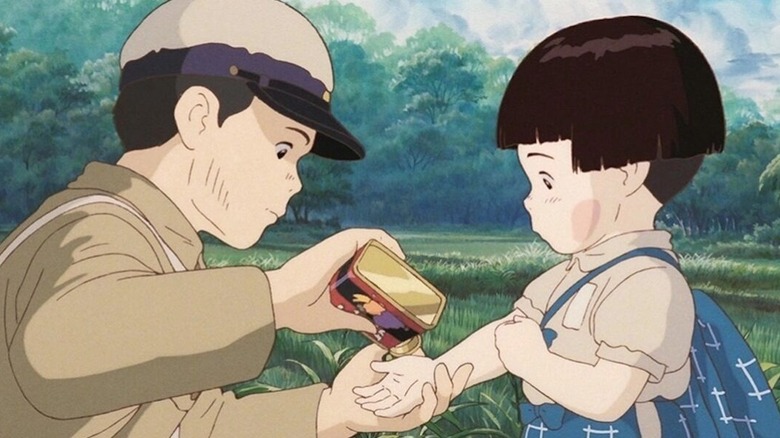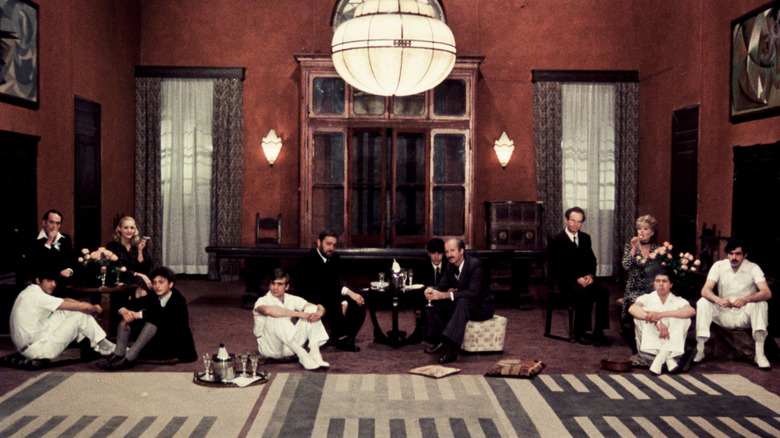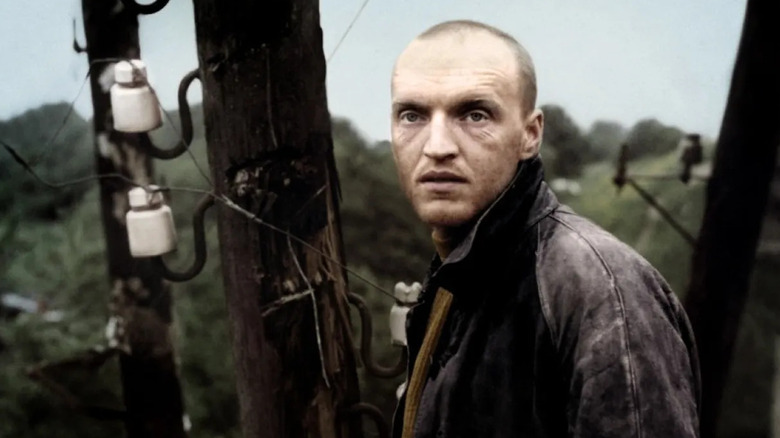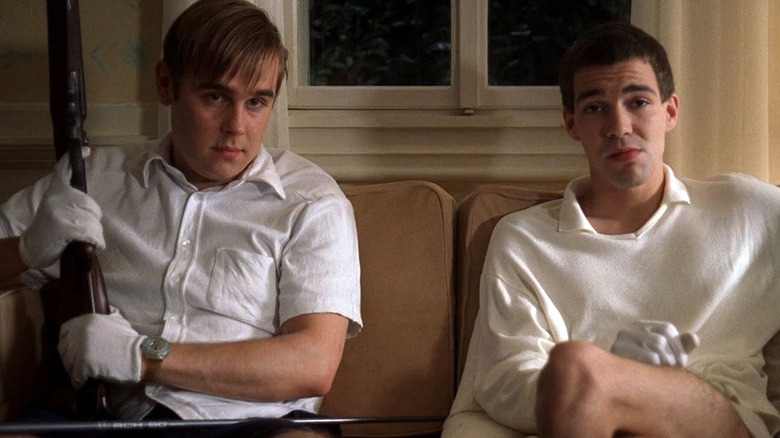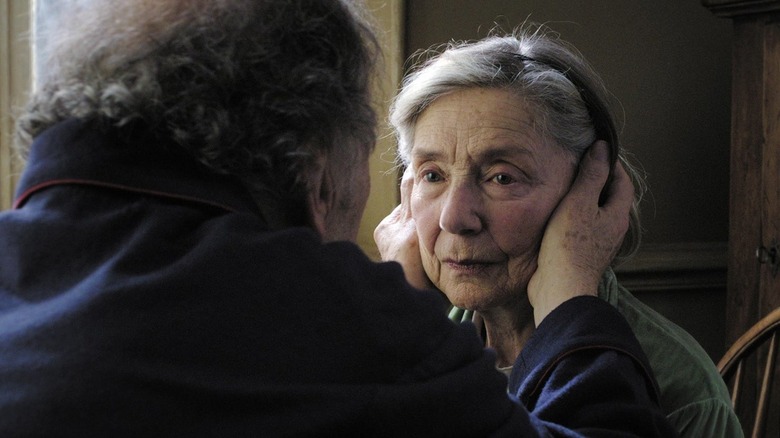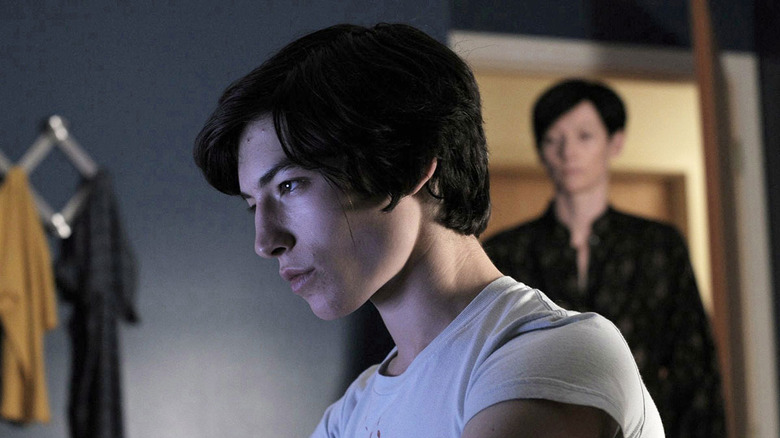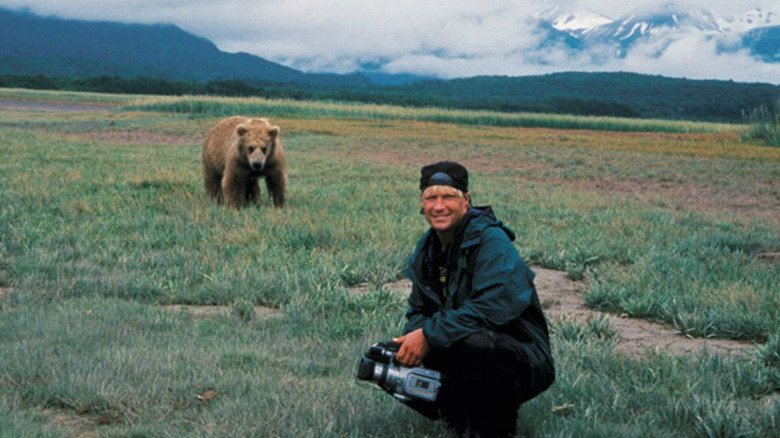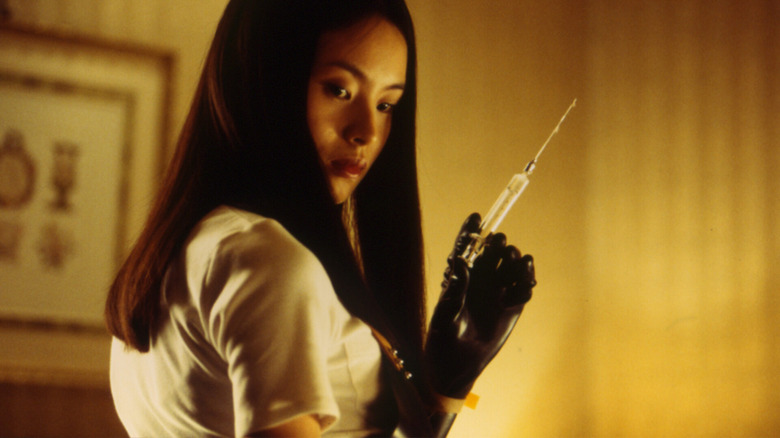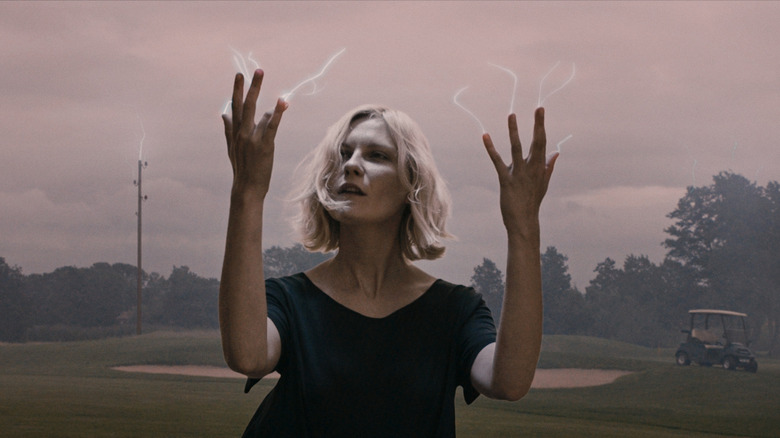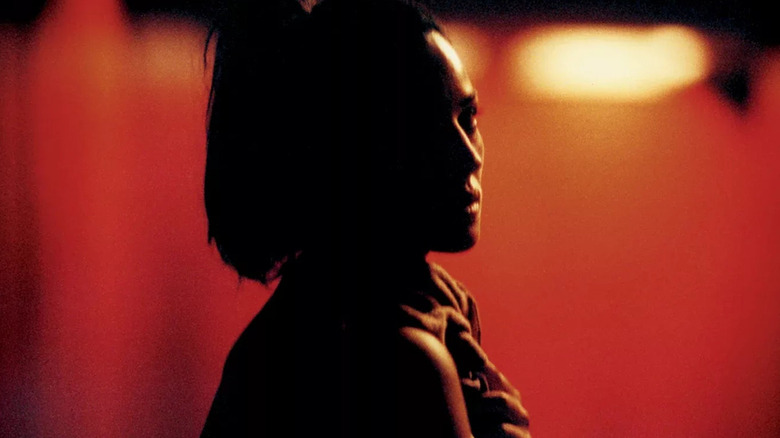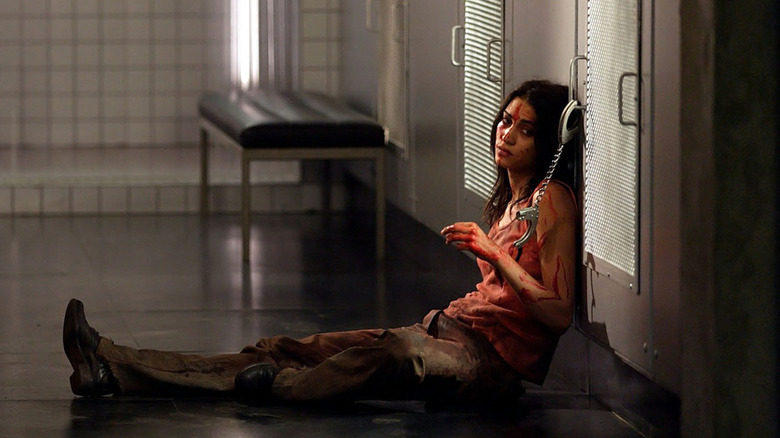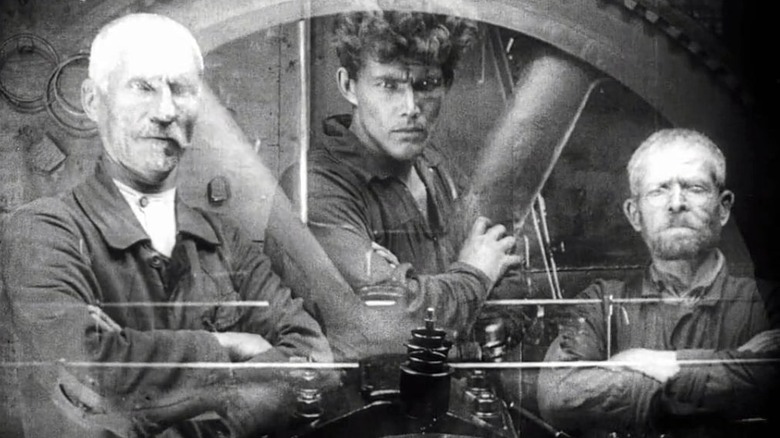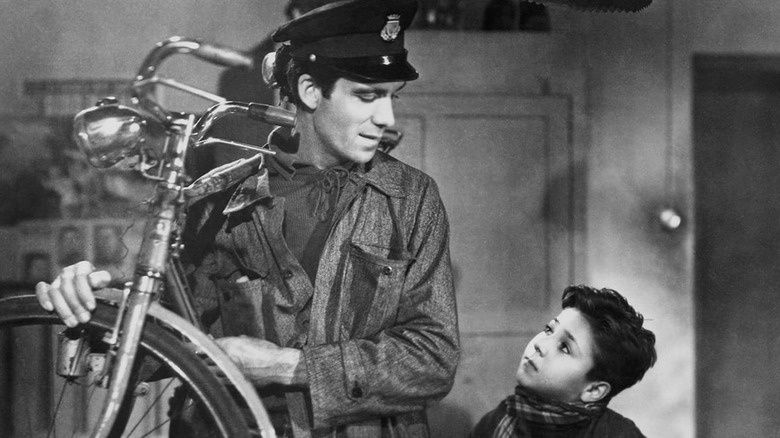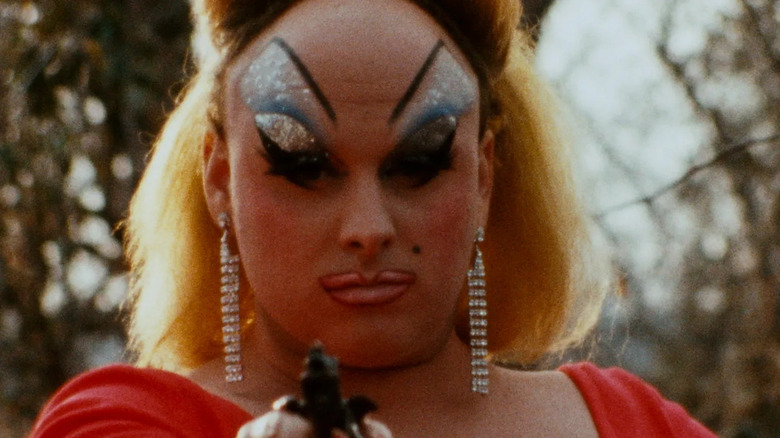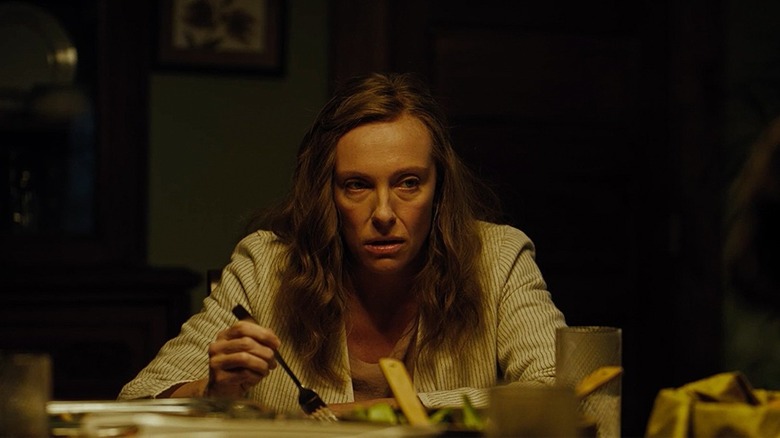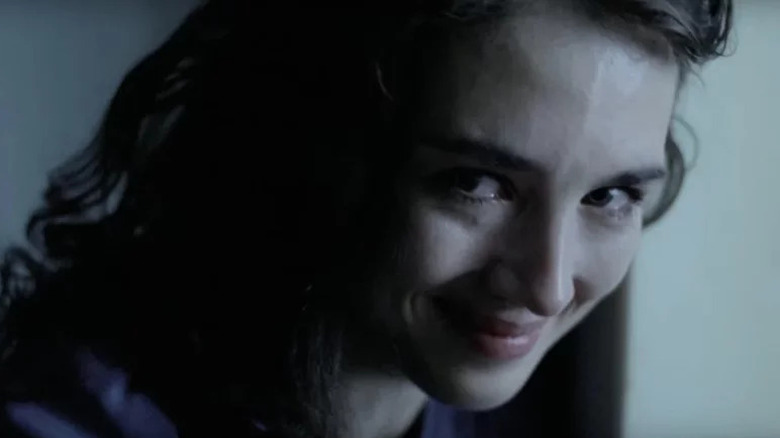The Greatest Movies We'll Never Watch Again
There are millions of movies in the world, but only a select few stand out from the cinematic pack. These are the "great movies," the ones that stand the test of time, change the game, and touch hearts around the world. But let's be honest. Not every great movie is "Star Wars," "Rocky," or "Pulp Fiction" — films that are infinitely rewatchable. Certain great movies are definitely worth checking out at least once, but we wouldn't necessarily want to rewind them right away... or ever.
So what makes a great movie a one-and-done kind of deal? Well, maybe they're a chore to sit through. Perhaps they're just too disturbing. Or maybe they're so emotionally traumatic that they left us weeping on the floor for days, and we're really not eager to relive that experience. From melodramatic war movies to stunning but slow-moving sci-fi, these are the greatest movies we'll never watch again.
The Deer Hunter will leave you devastated
War is hell, and while no film can truly capture the horrors of battle, "The Deer Hunter" does a pretty good job of taking moviegoers into the ninth circle. Directed by Michael Cimino, this 1978 epic follows a trio of blue-collar steelworkers who can't wait to see action in Vietnam. But when they finally descend into the jungle, they're put through the worst tortures imaginable — and the trauma doesn't stop once they come back home.
The movie opens innocently enough, with our three leads — Mike (Robert De Niro), Nick (Christopher Walken), Steven (John Savage) — celebrating at a wedding and joyously preparing for war. They ignore the grim warning from a shaken Green Beret, and when they're finally tossed into the jungle, they wind up smack dab in one of the most horrific movie scenes of all time: the Russian roulette sequence. Captured by the Viet Cong, the friends are forced to play the suicidal game for the amusement of their guards, and the acting here is so intense that it feels like a genuine snuff film.
After a devastating "rescue attempt," Mike is haunted by grief when he returns to the States. Steven loses both his legs and spends the rest of his life in a wheelchair. Nick's sanity comes crashing down, leaving him to wander through Saigon, lost in a fog of heroin and Russian roulette matches. It all culminates with that final tragic game and the saddest rendition of "God Bless America" you'll ever hear ... and never want to hear against because it hurts too much.
Oldboy will leave you feeling icky
"Oldboy" is one messed-up movie. Want to see a man lose his mind and sink into the utter depths of animal depravity? Yeah, that happens in like the first 20 minutes. Kidnapped and tossed into a mysterious prison cell, drunken businessman Oh Dae-su (Choi Min-Sik) has no idea who's locked him up or why. And that's the way it stays for 15 maddening years, as his mind slowly rots. The only thing that keeps him going is the thought of brutally murdering his captor.
When Dae-su is released without explanation, "Oldboy" wades deeper and deeper into the ick and the id. He slurps down a live octopus, goes Nazi dentist on his old warden, and even attacks a young woman. As protagonists go, it's tough cheering for the guy. On top of all that, you've got the movie's big bad, Lee Woo-jin (Yoo Ji-tae), who takes part in the creepiest ménage à trois ever put to film. But what truly makes "Oldboy" hard to rewatch is what happens in the last act.
After finally confronting his captor, Dae-su learns he was imprisoned because of his gossipy tongue. His indiscretion led to a young girl's suicide, and the girl in question was Woo-jin's sister ... and lover. So to teach Dae-su a lesson, Woo-jin has him abducted, imprisoned, hypnotized, and released, all before tricking Dae-su into falling in love with his own daughter, Mi-do (Kang Hye-jung). That gut punch-of-a-plot twist makes all the earlier scenes with Mi-do incredibly icky to revisit — especially the sex scene.
And we haven't even mentioned those awful scissors. If you can sit through that a second time, then chances are good you're a psychopathic Korean millionaire, hellbent on revenge.
Inland Empire is one long nightmare
All David Lynch movies feel a little dreamlike, but "Inland Empire" is pure subconscious surrealism — a cinematic fugue state that lasts over three hours. It's a movie critics describe as "practically impossible to review in a newspaper" and "never less than intriguing but often close to inaccessible." It's like you've stumbled straight into Lynch's worst nightmares.
For some fans, this might sound like an awesome experience, but for most moviegoers, "Inland Empire" feels like the world's worst acid trip. And we don't mean that in a fun, "Yellow Submarine" kind of way. It's definitely worth watching once, but when it's over, you might be too overwhelmed to give it another shot.
The plot — and we're using that term super loosely — involves an actress named Nikki Grace (Laura Dern, in a tour de force performance) who's set to star in a film called "On High in Blue Tomorrows," a movie with a haunted history. As Nikki gets deeper into her part, the lines between fact and fiction blur, and suddenly, she can't tell the difference between her role and real life. Past that, well, we're not really sure what's happening.
The movie is an impenetrably slow descent into a world of red lights, ambient noises, and digital camerawork. And while you can always appreciate Lynch's avant-garde genius, Inland Empire provides more questions than answers. What's up with the talking rabbits? What's the deal with that clown phantom in the hallway? Why are those sex workers all dancing to "The Locomotion"? Why is Grace Zabriskie so terrifying in everything she's in?
Okay, maybe Inland Empire doesn't give any answers at all.
The Wrestler will tap you out
Darren Aronofsky has a way of ripping your heart in two, tossing the pieces into the mud-filled streets, and then kicking the bloody bits into the gutter. Sure, that sounds extreme, but he directed "The Fountain" and "Requiem for a Dream," films that will leave you sobbing for days. He also directed "The Wrestler," a movie that's made of aching muscles, brittle bones, and the deepest, darkest loneliness ever felt by man.
The titular wrestler is Randy "The Ram" Robinson, a man whose glory days have left him far behind. He makes his living at a supermarket, though he occasionally wrestles in small-time promotions. But when Randy suffers a massive heart attack, he's forced into permanent retirement. Lonely and depressed, the wrestler tries reconnecting with the daughter he left behind years ago, and he goes looking for love in a nearby strip club. But second chances are easy to screw up, and sometimes you simply can't make amends. So when Randy's life loses all meaning, he decides to risk it all and get back in the ring for one last match.
Seriously, this movie is one big tearjerker. Try not to cry when Randy tells his daughter "I'm an old broken down piece of meat, and I'm alone. And I deserve to be all alone. I just don't want you to hate me." Try not to sniffle when Randy imagines the roar of the crowds, only to step out into a deli full of ungrateful customers. And when our battered hero performs one final "Ram Jam" for the adoring crowds, you won't be able to see through all the tears. "The Wrestler" will break even the biggest, baddest WWE fans, and when it's over, you definitely won't want a rematch.
Kill List will leave you feeling dead inside
Directed by Ben Wheatley, "Kill List" is a creepy British film that mashes the brutal violence of "Oldboy" with the pagan horror of "The Wicker Man." It's hard to finish the first time, and too terrifying to ever try and hit again.
Released in 2011, "Kill List" stars Neil Maskell as Jay, a soldier-turned-assassin who's fallen on hard times. He's got money problems, relationship troubles, and some serious PTSD. But things start looking up when he gets a gig to pick off three easy targets. However, whenever he shows up to put a cap in his victims, they start thanking him for the privilege of dying by his hand. It's more than a little unsettling, and soon, Jay realizes he's in the center of an occult conspiracy that demands a lot of blood and some really big sacrifices.
Ben Wheatley films are never easy to watch — see "High-Rise" and "A Field in England" for proof — but "Kill List" is an all-out assault on the senses. Not only is it one of the most suspenseful movies ever made, but Wheatley knows how to craft a disturbing sequence. If you've seen it once, then you probably have no desire to revisit that truly upsetting hammer scene. The final showdown with a group of naked pagans is pure nightmare fuel, but it's the final few minutes that will leave you reeling. We won't spoil the ending, but after you watch it once, you probably won't ever watch it again, because this is a horror film that stabs you in the back and leaves you gutted.
Enemy will trap you in its web
Arachnophobes, beware. If eight-legged creatures give you the willies, then you might want to stay far away from "Enemy." Directed by Denis Villeneuve, this eerie thriller is full of spider imagery, from a massive arachnid wandering through a city to a woman with a tarantula head. Even spider lovers might find this film a bit unsettling, but there's more disturbing stuff going on here than just evil invertebrates.
Shot in a sickly yellow hue, "Enemy" stars Jake Gyllenhaal as a college professor who's made an unsettling discovery. After renting a particular film, he spots an actor who looks exactly like him. Eventually, the two doppelgängers collide, and let's just say they don't become best of friends. Actor-Gyllenhaal is a grim and violent man and pulls depressed and weary Professor-Gyllenhaal deeper and deeper into his web of darkness. (See what we did there?)
Playing two roles, Gyllenhaal makes your skin crawl, with his characters engaging in blackmail, rape, and manipulation. It's not exactly what you'd call a feel-good film. It's queasy and uneasy. Granted, despite the disturbing and downbeat tone, you might be tempted to watch it a second time so you can figure out that ending. But if you want to spare yourself another heart attack, you should probably let the end remain a mystery.
Sure, the second time around, you'll know that scare is coming, but trust us, the ending of "Enemy" will remain just as horrific and confusing no matter how many times you watch it. And what's going to happen if you're scared half to death twice? Don't say we didn't warn you.
Manchester by the Sea will leave you bawling
When it comes to portraying pain, there's no one quite like Casey Affleck. Maybe it's those mournful eyes or his husky, cracking voice. Whatever the reason, Affleck can emote some serious sad vibes, and the man is at the top of his depressing game in "Manchester by the Sea."
Affleck plays Lee Chandler, a handyman who's cut himself off from the world. The only time he interacts with people is when he's picking fights at the bar. However, Lee is forced out of hiding when his brother dies from a cardiac arrest. Naturally, Lee has to return to his hometown to arrange the funeral and care for his nephew Patrick (Lucas Hedges). But while he's going to do his brotherly duty, Lee wants out of that town ASAP. There's some bad history here in Manchester-by-the-Sea, and everywhere Lee goes, he sees ghosts from his past.
Eventually, we discover why Lee hates his hometown and why he's a depressed, angry shell of a man. One evening, after a night of drinking, Lee accidentally started a fire that killed his two kids. Unable to deal with the pain, Lee divorced his wife (Michelle Williams) and has done his best to disappear. For a moment, it seems like the bond he's forming with his nephew might save him from his past, but this ain't no Hallmark movie. In the film's final act, Lee admits that he "can't beat" the depression and guilt. They will haunt him every day for the rest of his life.
There are no easy solutions or feel-good endings here, and while "Manchester by the Sea" is a beautiful film, wallowing in all that misery a second time sounds like the most painful two hours you could ever spend.
Silence will torture your soul
A passion project for Martin Scorsese, "Silence" features no gangsters, no dirty cops, and no tax-driving assassins. Instead, the story follows two Jesuit priests, Father Rodrigues (Andrew Garfield) and Father Garupe (Adam Driver), as they head for the Land of the Rising Sun. It's a search-and-rescue mission, with the two men hoping to save the missing Father Ferreira (Liam Neeson), who was tortured into recanting his faith by the Japanese government.
Steadfast (and stubborn) in his faith, Rodrigues is tested when he falls into the hands of Governor Inoue Masashige (Issey Ogata), a guy who's not exactly a churchgoer. Practicing Christianity in Japan was punishable by death in the 17th century, but Masashige doesn't just want to murder this priest. He wants to break his spirit and make him renounce his beliefs. Needless to say, Masashige is very good at getting Christians to forget about God.
From the very first frame, "Silence" lets you know this isn't a family-friendly faith film. Japanese soldiers pour boiling water onto screaming missionaries. Catholic villagers are lashed to crosses set in the sea. Terrified locals are bound and tossed into the ocean. Worst of all, brutalized Christians are hung upside down in a torture device that would make Jigsaw feel uncomfortable. On top of the physical torment, Father Rodrigues is in constant spiritual pain. Should he recant and damn his soul to save the lives of others? And in the midst of all this pain, why is God so silent? Whether you're a believer or an atheist, "Silence" is a painful reminder that faith is never easy, pride is always destructive, and the silence of the universe is the most painful torture of all.
The Killing of a Sacred Deer will leave you feeling ill
Yorgos Lanthimos is a unique and brilliant filmmaker, but his movies always make you squirm in your seat. When it comes to watching his films, once is enough, especially "The Killing of a Sacred Deer" — a story of human cruelty and divine wrath.
Colin Farrell plays a cold-hearted heart surgeon named Steven Murphy whose fondness for the bottle contributed to the death of a patient. Steven refuses to admit any wrongdoing, and that's just not going to sit with the patient's son, an unusual teen by the name of Martin Lang (Barry Keoghan). There's something off about Martin. Maybe it's his matter-of-fact style of speaking. Maybe it's the way he eats spaghetti. Or maybe it's his godlike power to curse Steven's entire family.
As part of his revenge scheme, Martin tells Steven all his family members are going to die of a mysterious illness. They'll become paralyzed, and then they'll refuse to eat. And after they start bleeding from their eyes, they'll drop like flies. The only way Steven can stop this plague is by killing a member of his family. Lanthimos shows us every excruciating detail as Steven's children violently collapse and drag themselves across the floor. The movie gets even darker when the kids turn on each other, begging their father to kill their sibling. The desperation, the betrayal, the blood — it's all so cruel, and it culminates in one of the most disturbing climaxes ever filmed.
Horrific in ways that no slasher film could ever achieve, "The Killing of a Sacred Deer" is a powerful film that you won't watch more than once. Instead, you'll want to put a curse on whoever recommended the film to you in the first place.
Blade Runner 2049 will test your endurance
Directed by Denis Villeneuve, "Blade Runner 2049" is one of the most gorgeous movies ever made. A worthy follow-up to the 1982 original, this stunning sequel nabbed cinematographer Roger Deakins the Oscar he's deserved for so many years. From its barren desert wastelands to its neon holograms, "Blade Runner 2049" is a visually rich world of replicants and artificial intelligence, all beautifully bathed in smog and city lights.
However, it's not exactly what you'd call a fast-paced film. In fact, you might even call it a slog.
The movie follows Ryan Gosling as K, an android blade runner who stumbles across a mystery that might revolutionize the entire world. Crazier still, he might be at the center of a vast conspiracy, and during his quest for the truth, he meets the original blade runner himself, Rick Deckard (Harrison Ford). But while K does indeed solve the mystery, the film takes its sweet time in getting to the answers.
While "Blade Runner 2049" is a fantastic work of science fiction, it runs almost three hours long, and even thinking about rewatching it might be enough to make you a little sleepy. The sequel makes the first "Blade Runner" feel as fast-paced as a "Fast and Furious" movie, and if you've seen the Ridley Scott original, then you know it's not exactly in a hurry. While it's a beautiful film that will most likely be remembered decades from now, we definitely won't be watching this movie 2049 times ... or even twice.
Fruitvale Station will break your heart
Ryan Coogler and Michael B. Jordan have made some incredibly rewatchable films. "Black Panther" is one of Marvel's most entertaining movies, and "Creed" is practically flawless. However, "Fruitvale Station" is a little bit different — Coogler's first film is a powerful story that everybody should watch at least once, but that doesn't mean you'll want to revisit it anytime soon, especially if "Fruitvale Station" hits close to home.
Based on a tragic true event, "Fruitvale Station" tells the story of Oscar Grant (Jordan), a 22-year-old man who was killed by a Bay Area Rapid Transit officer in 2009. And that's not a spoiler: The movie starts with actual footage of the shooting, so for the rest of the film, we know what we're building toward. We watch Oscar bonding with his daughter and connecting with strangers. We see him smile and laugh, full of life. Sure, he's got some issues, but he's a sincere guy trying to make things better. And what hurts is that we know he'll never get that chance.
Coogler does an excellent job of showing Oscar as a living, breathing human — not just a statistic. He loves, feels pain, makes mistakes, and affects so many people. But all his chances for a brighter future are brought to a bloody halt when he's shot in the back for absolutely no reason. He leaves behind a child, a girlfriend, and a mother. He loses a future full of promise. A human being bleeds to death on New Year's Day, and as "Fruitvale Station" comes to an end, we're not just depressed — we're mourning a life that was taken far too soon.
Room is one rough journey
Based on the novel by Emma Donoghue, "Room" is a survival story that ends on a hopeful note. But getting to that ending is one rough journey. Brie Larson plays Joy Newsome, a woman who was kidnapped and held prisoner in a one-room shed for seven years. During that time, she gave birth to Jack (Jacob Tremblay), an adorable little boy who thinks "Room" is the beginning and the end of the universe. That's what Joy has been telling him, anyway, to keep the kid sane. But Jack's mind is blown when his "Ma" devises a plan to escape her captor, thrusting the boy into a world full of cars, trees, buildings, and dogs — things he's never seen before.
There are plenty of sweet moments as Jack tentatively explores this great big planet. The look on his face when he sees the vastness of the sky for the first time is one of pure awe. The little sound of delight he makes when he meets a puppy is pure joy. Even back in "Room," watching Jack bake a cake and say good morning to his toilet is almost too cute to handle. But underneath these happy scenes, there's a lot of darkness. Back in "Room," Joy was raped every night, and in the real world, she's struggling to cope with the trauma of what happened in that shed. She sinks into anger and depression, finally culminating in a suicide attempt that leaves little Jack screaming in terror. After seven years of hell, readjusting to the real world is difficult for both Joy and her son. And while they eventually go back to face the horrors of "Room" one last time, we certainly don't have that kind of courage.
If you or anyone you know has been a victim of sexual assault, help is available. Visit the Rape, Abuse & Incest National Network website or contact RAINN's National Helpline at 1-800-656-HOPE (4673).
Green Room will gross you out
Directed by Jeremy Saulnier, "Green Room" pits punk rockers against Nazis, and while music hath charms to soothe the savage beast, it can't stop a bunch of machete-wielding skinheads. After winding up in the world's scariest club, the members of the Ain't Rights stumble across a particularly nasty murder scene. Knowing the alt-right owners aren't going to let them walk away, the band members lock themselves in the titular room and prepare for war. But jiu-jitsu will only get you so far when your opponents are walking around with pistols and pit bulls.
With our heroes completely outmatched, "Green Room" quickly devolves into a gore-soaked nightmare of ripped-out throats and nearly-severed limbs. Don't get us wrong: This is a masterclass in horror, with Saulnier keeping us on the edge of our seats as the Ain't Rights battle their way to freedom. But not everybody is getting out of this clubhouse alive, and poor Pat (Anton Yelchin) is going to lose a whole lot of blood by the time he lets go of that gun. Stomachs are slit with the greatest of ease, and dogs make mincemeat out of unlucky guitarists, all while Patrick Stewart looks on with cold, calculating contempt.
Unlike a lot of other horror films, the deaths in "Green Room" aren't at all fun. These kids are screaming in genuine pain as they're mangled by dogs and hacked by machetes. And the practical effects in this movie are so realistic that it feels like you're watching a snuff film. Yeah, "Green Room" is fantastic, but at its core, it's as mean and nihilistic as cinema gets. And while the rockers eventually take their revenge, so much blood gets splattered on the walls by the end that it should probably be renamed "Red Room."
Requiem for a Dream -- or nightmare
Director Darren Aronofsky is already on this list for 2008's "The Wrestler;" however, before that film, Aronofsky had directed the 2000 anti-drug nightmare come to life, "Requiem for a Dream." The film stars Jared Leto, Jennifer Connelly, Ellen Burstyn, and a rare dramatic turn for Marlon Wayans.
The plot of the film follows multiple intersecting storylines, chronicling how drug addiction affects different people's lives. There's Harry (Leto), his girlfriend Marion (Connelly), and his best friend, who are all addicted to heroin, while Harry's mother Sara (Burstyn, earning a best supporting actress nomination for the role) gets addicted to prescription diet pills when she's offered a chance to go on television.
What makes "Requiem for a Dream" so great, however, is how it creatively visualizes the nightmarish horrors of addiction, using various filmmaking techniques to put you in the minds of the drug-addled characters. This includes fast, disorienting edits, surreal dream sequences –- especially those involving Sara's hallucinations where she believes she's inside a television show –- and the use of the anxiety-inducing SnorriCam. It's also a harrowing and tragic story about how addiction leads to the loss of identity, ending with amputated appendages, incarceration, and the complete loss of bodily autonomy.
Unfortunately, what makes the movie so effective -– namely its unflinching and disturbing depiction of addiction -– is exactly why it's hard to get through even once ... let alone multiple viewings.
If you or anyone you know needs help with addiction issues, help is available. Visit the Substance Abuse and Mental Health Services Administration website or contact SAMHSA's National Helpline at 1-800-662-HELP (4357).
Twin Peaks: Fire Walk With Me towards a bed to curl up in
David Lynch's 1992 horror-drama "Twin Peaks: Fire Walk With Me" is the feature film adaptation of the popular television series "Twin Peaks," which ran for two seasons from 1990-1991. The series –- co-created by Lynch and Mark Frost -– is set in the titular Northwestern town of Twin Peaks, where the beloved prom queen Laura Palmer (Sheryl Lee) is found murdered. Laura's death completely shakes up the sleepy town, which is full of secrets that visiting FBI agent Dale Cooper (Kyle MacLachlan) slowly unravels.
The show eventually ended on a shocking cliffhanger; however, instead of being a continuation of the show, "Fire Walk With Me" was a prequel that chronicled the last days of Laura Palmer's life before her murder. This upset many fans -– especially considering the cliffhanger wouldn't be resolved until 25 years later on Showtime's "Twin Peaks: The Return" in 2017.
However, by being a prequel, the film allowed Laura Palmer to be more fleshed out as a character, rather than the cipher she was on the show. She wasn't simply a victim, she was more than that, and seeing her struggles firsthand –- rather than in passing or through others' recollections –- makes her tragedy much more personal and real.
Unfortunately, its strength is also why it's hard to watch twice. It's a dark, winding nightmare of abuse, incest, and ultimately death. Not exactly the kind of experience you want to revisit often.
Do the Right Thing and watch this movie, but maybe not twice
Spike Lee's 1989 drama "Do the Right Thing" is a masterpiece about the prevalence of casual (and not-so-casual) racism, set during a particularly scorching heatwave in Brooklyn. The story is centered around the white-owned pizza shop Sal's Pizzeria, run by Sal himself (Danny Aiello), in the middle of a mostly Black neighborhood. Racial tensions arise during the course of a single eventful day, including between Sal's racist son, Pino (John Turturro), and Sal's main Black deliveryman Mookie (writer-director Spike Lee); a flailing boycott of Sal's Pizzeria spear-headed by the passionate Buggin' Out (Giancarlo Esposito); and more. It all culminates in an attack of extreme police brutality that causes the untimely death of the boombox-carrying Radio Raheem (Bill Nunn), which sparks a violent, fiery riot and the burning down of Sal's Pizzeria.
"Do the Right Thing" is ultimately a devastating, all-too-relevant story, even today. It's hard not to find multiple stories about racialized violence, institutionalized bigotry, and rampant police brutality. It's also not hard to be swept away by the riot at the end -– which presaged the LA riots and the cathartic George Floyd protests. And as we've seen in the news over the past few years, things haven't been much better in that regard since the film's release, which makes it harder to watch Spike Lee's 1989 joint and realize how far we still have to go as a society.
Sophie's Choice is a devastating one
The horrors of the Holocaust, which ultimately led to the deaths of over six million Jewish people and other targeted minorities, can never be understated. It is the most heinous genocide in modern history (though sadly not the last), and its lingering horrors have greatly affected multiple generations. Furthermore, stories from that era need to be told, so that history never forgets ... and also so that its atrocities can't be downplayed later on, nor its perpetrators let off the hook.
However, despite the obvious necessity of stories set around that time, they obviously don't make for the most pleasant viewing. 1982's "Sophie's Choice," starring Meryl Streep as the titular Sophie (which earned her an Academy Award for best actress), is no exception. The story is set after World War II and revolves around an affair between the married Sophie and a writer named Stingo (Peter MacNicol), where Stingo slowly peels back Sophie's past as a former prisoner of the infamous Auschwitz concentration camp.
During the course of the film, it's eventually revealed that in the camp, Sophie had to make the worst choice imaginable: being forced to choose between saving either her son or her daughter from the gas chamber. While she ultimately chooses her daughter, that guilt weighs on her forever, leading to her eventual suicide. Because of how tragic that decision is –- and how well Streep plays Sophie's anguish –- it's not a viewing experience that cries out for multiple visits.
If you or someone you know is struggling or in crisis, help is available. Call or text 988 or chat 988lifeline.org
Schindler's List has many entries about why it's a hard, if necessary, watch
1993's epic biopic "Schindler's List" — like the previous entry, "Sophie's Choice" — is set during the Holocaust, and is one of director Steven Spielberg's greatest films (which came out the same year as "Jurassic Park").
The film itself is shot in stark black-and-white by cinematographer Janusz Kamiński, his first collaboration (of many) with Spielberg, for which he won the Oscar for best cinematography. The plot of the film follows the exploits of the eponymous German industrialist Oskar Schindler (Liam Neeson), who was a card-carrying member of the Nazi party at the beginning of World War II. However –- at least according to the film -– Schindler never fully bought into the party's antisemitic propaganda. Thus, when he sees the various atrocities the Nazis inflict against the Jews, Schindler decides to do something about it. This includes hiring Jewish workers for his munitions factory to keep them from the camps, while also sabotaging the Nazi war effort by purposely producing faulty bombs.
While "Schindler's List" is indeed a great film, it is also unflinching in its depiction of the horrors of the Holocaust –- such as Ralph Fiennes' SS officer Amon Goth casually shooting helpless prisoners, the anxiety-inducing gas chamber scene, and the death of the girl in the red jacket (the only source of color in the whole film) -– which makes it hard to want to experience over and over again.
Grave of the Fireflies gives more reasons why World War II was bad
"Grave of the Fireflies" – based on the short story by Akiyuki Nosaka — is a Japanese anime feature film from 1988, written and directed by Isao Takahata for Studio Ghibli. Set in World War II, the film follows two young siblings –- Seita and Setsuko -– who attempt to find safety after the constant bombing raids from the United States completely decimate their hometown of Kobe, Japan. During the course of the film, the two face many hardships, including starvation, and abandonment. In the end, the film's tragedy makes the audience rethink the devastation and necessity –- as well as the cost –- of war, especially when it comes to the innocents simply caught in the crossfire.
The animation "Grave of the Fireflies" is also top-notch –- unsurprising coming from Studio Ghibli –- as the studio once again elevates the medium. The film is gorgeously rendered, as even in its darkest moments, the artistry and talent of the filmmakers are always on full display. In fact, the heightened aesthetic that animation allows for makes the more nightmarish moments even more pronounced and impactful, as it subjectively invites the audience into the mindset of the frightened children.
Unfortunately, due to just how effective "Grave of the Fireflies" is at depicting the horrors of war, it's not really a film made for repeat viewings.
Salò, or the 120 Days of Sodom is more than just shock value
Director Pier Paolo Pasolini's 1975 Italian dark political satire "Salò, or the 120 Days of Sodom" is often derided as "the movie where people eat feces." Which, to be fair, does happen (a few times, actually), but the film is much more than that. "Salò" is actually an adaptation of Marquis de Sade's "120 Days of Sodom" (hence, the film's subtitle), which de Sade wrote while imprisoned in the late 1700s. Pasolini and his co-writers, however, decided to set the film at the end of World War II in a Fascist-occupied portion of Italy called the Republic of Salò, turning the film into an explicit anti-fascist allegory.
In "Salò," unnamed fascists known only as The Duke, The President, The Bishop, and The Magistrate imprison young people in a secret mansion to torture them sexually, physically, and mentally -– including even converting some of them into their depraved regime. Beyond its initial shock value, though, "Salò" is nonetheless a visceral appeal against a resurgence of fascist rhetoric in mid-20th century Italian politics –- and abroad–- using the film as a sincere warning about the ideology that underpins fascism.
However, despite the film's merits as an art piece, a black-hearted political satire, and a harrowing horror film, it still has multiple scenes of extreme sexual assault and people eating poop. It's not exactly something you put on in the background while doing chores.
If you or anyone you know has been a victim of sexual assault, help is available. Visit the Rape, Abuse & Incest National Network website or contact RAINN's National Helpline at 1-800-656-HOPE (4673).
Stalker is a journey of futility
After the success of "Solaris," both critically and commercially — including winning the Grand Prix Spécial du Jury at the 1972 Cannes Film Festival — Soviet director Andrei Tarkovsky began production on his other seminal cerebral sci-fi drama, 1979's "Stalker." The film is an adaptation based on the popular Russian novel "Roadside Picnic," and is set in a near-future dystopia, where people called Stalkers act as a guide for others attempting to enter and explore a restricted place called The Zone. This strange location doesn't follow the law of physics –- such as walking in circles being faster than walking in a straight line -– and also supposedly grants people their greatest and deepest desires. At the beginning of the film, everything is desaturated and sepia-toned, however, once the titular Stalker guides two other men into the aforementioned Zone, the film suddenly becomes a burst of beautiful, vibrant color.
"Stalker" is about the harsh realities of society, the world, and its impact on the individual -– as well as the innate desire to escape this reality by any means necessary. The journey the three men embark on is perilous, lonely, and –- ultimately –- futile. The film is a difficult reminder that we cannot escape our obligations to the world, and that suffering is a necessary requirement towards fulfillment ... but also that fulfillment is not guaranteed, despite the suffering. Not exactly a lesson you need to hear more than once, even if it's an important one.
Funny Games doesn't play around with violence
Are we, as a society, getting too desensitized to violence? Even if it's in the form of fictionalized violence? This is the very question director Michael Haneke attempts to grapple with in his violent and highly metatextual 1997 Austrian horror-thriller "Funny Games."
The film is about two troubled young men named Paul and Peter (Arno Frisch and Frank Giering, respectively) who hold a well-to-do family hostage –- consisting of a father (Ulrich Mühe), his wife (Susanne Lothar), and son (Stefan Clapczynski) -– and proceed to torture them for pretty much the entire runtime. However, the film isn't like "Saw" or "Hostel," and is instead self-aware about its use of violence. See, Paul will often look to the camera, and explain what he's doing directly at the audience, breaking the fourth wall. In this way, Haneke is using the character as a proxy for what he sees as the danger of callous fictionalized violence leading to real-life violence. Now, regardless of how dubious that claim might be, the film is still nonetheless darkly humorous and satirical — it even features a scene where Paul literally rewinds the film because the family does something unexpected, and not rote or predictable like the thrillers he's trying to recreate. Haneke directed a shot-for-shot English language remake a decade later in 2017.
However, no matter how effective the film is at conveying its themes, it's still violent and disturbing, which isn't exactly conducive to rewatches.
Amour loves to depress its audience
Austrian auteur Michael Haneke -– director of previous entry "Funny Games" –- makes an appearance once again on this list with his 2012 French-language drama "Amour," which won both the Palme d'Or at the 2012 Cannes Film Festival and the Academy Award for best foreign language film. The film follows the story of an old married couple in their 80s named Georges and Anne Laurent (Jean-Louis Trintignant and Emmanuelle Riva, respectively) as Georges attempts to take care of Anne after she suffers a stroke and becomes paralyzed on her right side. The story eventually concludes with Georges suffocating Anne after her disposition gets progressively worse, to the point where she can't make coherent speech anymore.
The film, despite its depressing subject matter, is nonetheless still a beautiful reflection of love, relationships, and our enduring connections to the people around us –- as well as the lengths we'll go for them. Its awards recognition and critical acclaim are much deserved, especially the soulful performances of Trintignant and Riva.
Nonetheless, due to its subject matter –- and the unflinching ways in which Haneke lingers on the gradual and inevitable deterioration of Anne's faculties as she succumbs to her illness –- it's a hard film to watch even once, let alone multiple times. It's beautiful and tragic due to its realism and groundedness, but that's also what makes it so heartbreaking as well.
We Need to Talk About Kevin and why its a one-and-done movie
While Ezra Miller is currently known for engaging in recent alleged criminal behavior, they first appeared in 2011's intense psychological drama "We Need to Talk About Kevin," directed by Lynne Ramsay ("You Were Never Really Here"). In that film, Miller portrays the titular Kevin, a troubled 16-year-old teen who kills his fellow classmates with a bow and arrow. The film's narrative, however, actually follows Kevin's bereaved mother, Eva (Tilda Swinton), who throughout the film is blamed by her community for Kevin's behavior, despite her being abused by him as well. Later on, we even see Kevin murder his well-meaning father (John C. Reilly) and younger sister (Ashley Gerasimovich).
"We Need to Talk About Kevin" is a fascinating exploration of the nature of evil, and what causes people to carry out heinous acts, rejecting easily digestible explanations. It states, rightfully so, that it's not always a broken or abusive home that leads to violence, even if that's an easy scapegoat. Furthermore, there are many disturbing real-life parallels to Miller's Kevin, such as the Columbine perpetrators, Elliot Rogers, and the recent deluge of school shooters.
Nonetheless, due to the intense and tragically relevant subject matter – despite being a well-made and well-acted film that's indeed worth watching — it's hard to recommend a second viewing of "We Need to Talk About Kevin."
Grizzly Man bears heavily on the soul
Werner Herzog is an eclectic German filmmaker and documentarian who is best known for his unique and oft-parodied personality, as well as films that deal with existential subject matter, including works like "Into the Abyss" and "Lessons of Darkness."
However, one of Herzog's most tragic films is his 2005 documentary "Grizzly Man." The film follows the life –- and untimely death –- of the titular "Grizzly Man," aka Timothy Treadwell. A man fascinated by bears, Treadwell spent several years prior to his death studying them at Katmai National Park and Preserve in Alaska. In the documentary, Herzog narrates the footage Treadwell filmed as he spent his summers among a group of bears, whom he names and treats as a family. He even gets his girlfriend, Amie Huguenard, involved. But their story comes to a disturbing end when both Treadwell and Amie are mauled by a bear, an event that was recorded on Treadwell's equipment. In one of the most harrowing sequences of the film, Herzog himself listens to the recording of their untimely deaths, obviously affected by it.
Herzog's film also deals with pertinent themes of alienation, obsession, and delusion. Treadwell himself felt so disconnected from his life that he created a fantasy where he could force a familial bond with literal wild animals. It's a fascinating case study, and worth a watch, but it's hard one to bear on subsequent viewings.
Audition tries out for most torturous date
Takashi Miike is a prolific Japanese filmmaker with over 100 titles to his name, and is known for his ability to switch genres and sensibilities on a whim, from the goofy "Ninja Kids!!!," to the action-packed "13 Assassins," to the video game adaptation "Ace Attorney."
Miike's 1999 film "Audition" begins its first half as a cute rom-com about a despondent widower named Shigeharu (Ryo Ishibashi), who asks his film producer friend Yasuhisa (Jun Kunimura) to set up a fake audition so Shigeharu can pick out a worthy romantic partner for himself. Shigeharu then becomes enchanted by the beautiful and alluring Asami (Eihi Shiina). At first Shigeharu and Asami's meet-cute and subsequent dates are framed by the narrative as charming and endearing. That is, until Asami starts showing signs of psychosis. Once this turn happens, "Audition" becomes a full-on horror film, with Asami torturing Shigeharu in ways that exceed the torture porn excess of the "Saw" and "Hostel" franchises — including sticking needles into his eyes.
The themes also become more apparent, such as the normalization of exploiting women in the Japanese film industry (as the initial audition was advertised to be for a film role), and a critique of the shallowness of "cinematic one-true love" that Asami is so enthralled by — leading to her disassociation with reality. It's a great film, with compelling performances, memorable gore, and some fun twists ... but the torture is still hard to endure, nonetheless.
Antichrist isn't evil, but it is a hard watch
Director Lars Von Trier is known for making a lot of "feel-bad" movies, including 2003's "Dogville" and 1991's "Europa." That's because his films, while often beautiful to look at and well-acted, also deal with themes of loss, pain, and existential dread.
However, one of Von Trier's most emotionally and existentially draining films is 2009's surreal horror-drama "Antichrist." It stars Willem Dafoe and Charlotte Gainsbourg, playing an unnamed married couple who are attempting to cope with the death of their young son, who fell out of a building. The couple eventually decides to travel together to a remote cabin in the woods (always a good idea to do in a horror movie), where they hope to confront their demons and come to grips with the unexpected loss of their child. Unfortunately, the couple's metaphorical demons begin manifesting in increasingly distressing and surreal ways throughout the film, including a talking disemboweled fox, gory genital mutilation, and a graphic sex scene involving a tree made of corpses.
Nonetheless, "Antichrist" has a great atmosphere, memorable (if disturbing) symbolic visuals, and soulful, emotionally raw performances from the two main leads. However, like a lot of Von Trier films, "Antichrist" is not for the faint of heart, and is a nightmare to get through even the first time around, let alone a second or third.
Melancholia makes the end of the world seem especially depressing
While there have been many end-of-the-world films focusing on a giant object headed towards Earth, many have either been action films -– like 1998's "Armageddon" and "Deep Impact," which both ended with happy-ish endings — or comedies (albeit dark ones) that use humor to alleviate some of the tension of the disaster, such as 2021's "Don't Look Up."
However, out of all the object-hitting-Earth films, 2011's "Melancholia" might be the most bleak. This is unsurprising, as the film was written and directed by Lars Van Trier, who — as mentioned in the "Antichrist" entry — doesn't exactly do light and fluffy. That's not to say there isn't some pitch-black comedy throughout the film, but it's much less broad than other examples. In fact, one of the chief ironies is how well Kirsten Dunst's character, Justine — a newly promoted art director for a marketing company — handles the end of the world, due to her crippling depression, as opposed to her other quote-unquote "well-adjusted" family, who fall to pieces.
The narrative itself is mostly set in one location during Justine's wedding reception, which allows for a more confined, personal, and focused take on the disaster film formula. "Melancholia" is a beautiful meditation on life, death, family, fate, and a great visual metaphor for the feeling of depression. However, due to its intense nature, it is hard to experience multiple times.
Irreversible is an exercise in brutality
French director Gaspar Noé's ("Enter the Void") intense drama/thriller "Irreversible" from 2002 is most famous (or, rather, infamous) for an extended, uninterrupted, minutes-long sequence where actress Monica Bellucci — playing the character Alex — is sexually assaulted under an overpass by the vile Le Tenia (Jo Prestia). It's not a pleasant scene to watch, by any means. However, the film itself is much more than just that one scene.
"Irreversible" uses that disturbing event as an inciting incident to comment on the cycles of violence caused by revenge, which can spiral out and become self-perpetuating and never-ending. However, the film's story is told in reverse order, and actually opens up following two male characters — Alex's boyfriend, Marcus (Vincent Cassel), and her ex-boyfriend, Pierre (Albert Dupontel) — who both seek bloody and murderous revenge on the aforementioned Le Tenia at a club together. The film then goes backward in time from there, adding more layers and twisted revelations to all the characters as the story unfolds, with Alex's assault happening halfway through the film to add context to the events before and after it.
However, despite the various merits of the film, "Irreversible" is still a hard watch. A story about the perpetuation of violence isn't really a recipe for a feel-good time, regardless of how well-executed the themes might happen to be.
If you or anyone you know has been a victim of sexual assault, help is available. Visit the Rape, Abuse & Incest National Network website or contact RAINN's National Helpline at 1-800-656-HOPE (4673).
Martyrs' body horror saves audiences a second viewing
"Martyrs" is a 2008 French horror film that often tops the list of most messed up horror films of all time, and with good cause. Written and directed by Pascal Laugier ("Raw"), the film stars Morjana Alaoui as Anna, a former abuse victim and patient at a psychiatric institution who accidentally gets involved in an evil secret society's plot to torture girls and turn them into the titular "martyrs." In the film's lore, the torture inflicted upon the "martyrs" is meant to help them discover the secrets of the afterlife.
The film itself is a living nightmare, with many scenes of extreme gore and torture, including a live flaying scene that rivals –- if not exceeds –- the one from "Passion of the Christ." If you're a hardcore horror fan, this film is a must-see for that scene alone, but it's got a lot more going for it underneath the surface as well. There are also pertinent themes of religious fanaticism, faith overwhelming reason, and the harrowing revelation that maybe there isn't life after death.
However, while the film is a great horror film ... it's a great horror film precisely because it's, well, horrifying. It succeeds in making audiences grossed out and frightened, but those aren't exactly experiences most people want to relive more than once if they can help it.
Strike describes how tragedy sparks revolution
Sergei Eisenstein is one of the most influential filmmakers ever, especially during the early days of cinema. While Hollywood often gets most of the attention when it comes to the silent era of filmmaking, there were also a lot of technological and narrative advancements made internationally. Eisenstein himself was a Soviet director who innovated many editing techniques, such as the modern montage.
His 1925 silent epic "Strike" doesn't have a standard narrative, and instead is a series of vignettes chronicling the eponymous labor strike against a factory in pre-Soviet Russia, during the brutally totalitarian regime of the tsar. Like Eisenstein's other 1925 epic "Battleship Potemkin," "Strike" doesn't focus on one main character, instead letting the film present the strike as the collective effort it was, showcasing its many facets and challenges.
While "Strike" was produced in the U.S.S.R., the film's story is set in Russia during the height of the tsar's power, meaning it has to end on a tragic note with the workers failing to stop the government forces from subduing the titular strike, with many families and children killed on screen by the tsarist police force. The film is, therefore, a sober reminder of the sacrifices made by workers against the mechanizations of capital, and why revolution was indeed necessary. However, seeing families and innocent children murdered isn't exactly something you'd want to watch repeatedly.
Bicycle Thieves steals our hearts
1948's "Bicycle Thieves" is a classic Italian neorealist film directed by Vittorio De Sica. It's set in post-war Italy, and follows the story of the desperate and poor Antonio Ricci (Lamberto Maggiorani), who's down on his luck with a job riding a bike to paste advertisements around town ... that is, until his bike is stolen. The film then becomes a desperate search through the ruins of Rome -– decimated by the fighting in World War II –- where Antonio and his son Bruno (Enzo Staiola) discover that crime is rampant, the police can't do anything, and everyone is simply trying to scrape by, just like him. Eventually, Antonio -– fed up with not being able to find his own bike -– attempts to steal one himself, repeating the cycle of desperation and hopelessness that befell him at the beginning of the film, becoming one of the titular "bicycle thieves."
Like a lot of Italian neorealist films of the era, "Bicycle Thieves" focuses on the struggles of working-class people –- especially during the post-war era. It was even shot in real locations of bombed-out buildings and used non-professional actors, which was common for neorealist productions as well. However, despite the film's great performances, heart-wrenching story, and gorgeous black-and-white cinematography, it's not an easy watch.
Pink Flamingos is disgusting on purpose...but still disgusting
"Pink Flamingos" stands apart in this list as one of the only comedic entries. The 1972 dark comedy was written, directed, produced, edited, and narrated by the provocateur auteur himself, John Waters, and is literally about the most disgusting people on Earth. That's not hyperbole, either, as the entire plot of the film hinges on a contest between the "filthiest people alive," of which the drag queen Divine -– playing an over-the-top fictionalized version of herself -– is the reigning champ. However, Divine's title is challenged by a rich, snobby married couple, the Marbles.
The film then becomes a series of vignettes of Divine and her family –- including her son Crackers and infantile mother Edie (whom Divine keeps in a cage) –- engaging in acts of bestiality, incest, and murder as a way to remain the "filthiest person alive." Divine –- the actress as well as the fictional character –- even eats a real piece of dog feces on screen.
The film itself is historically important as a provocative and subversive midnight film, which helped legitimize LGBTQ+ representation on the big screen. It's also a big "f— you" to mainstream moral standards, and the hypocrisy that goes with it, such as the way the mainstream media in the film glamorizes Divine's murder spree. However, despite the film's often hilarious humor and punk rock attitude, it's also still pretty gross to sit through more than once.
Hereditary is about the worst family
Director Ari Aster's critically acclaimed 2018 film "Hereditary" — while ostensibly a horror movie — is honestly much more of a messed up family drama. Which, ironically, makes it much more horrifying. This is because the family elements truly ground the otherwise supernatural elements in the story, elevating the film into something more innately (and uncomfortably) relatable than it otherwise would have been.
"Hereditary" stars Toni Collette as Annie Graham, who opens the movie giving a eulogy at a funeral for her emotionally abusive mother ... which is just the start of her family's issues. In a shocking moment later in the film Annie's daughter Charlie (Milly Shapiro) gets beheaded by a telephone pole when Annie's son Peter (Alex Wolff) attempts to drive her home one night after a party. As these multiple tragedies keep piling up, they take a mental toll on Annie, who begins losing her grip on reality. She starts having intense outbursts during family meals, and even comes to believe that her family might be cursed by a secret Satanic society that her own recently deceased mother was a part of.
However, despite the horror trappings and gruesome visuals of "Hereditary" (including a harrowing scene where Annie's husband Steve -– played by Gabriel Byrne -– is magically burnt to death), it's the quieter domestic moments that hit home the hardest in the film ... and also what makes it harder to revisit.
Possession will get into your head
1981's "Possession," directed by Polish art house filmmaker Andrzej Żuławski ("The Devil"), is literally a nightmare printed onto celluloid. The film is ostensibly about the dissolution of a marriage, but it is told symbolically through horrific and disturbing hallucinations (or are they?), with possible supernatural implications. The film is also almost impossible to cleanly classify. It contains multiple genres — domestic drama, spy thriller, and horror film — and is unflinching in all of them. The story is nominally about the messy deterioration of a marriage between a former spy Mark (Sam Neill) and his erratic wife Anna (Isabelle Adjani), which spirals out into something much more harrowing — and even potentially demonic — by the end.
The film is truly unique in its depiction of a toxic and abusive relationship. The stylized and soul-wrenching performances from Neill and Adjani push the audience into the dark and subjectively anguished mindset of the characters, while the disturbing and grotesque metaphorical images (including a gory Lovecraftian tentacle monster made of corpses that Anna makes love to) help externalize Neill's betrayal and anger.
However, it's nonetheless a very gross, tense, and unpleasant film to watch. These aren't criticisms of the film, by any means -– it is meant to be those all things. It's just not a fun place to visit more than once.
